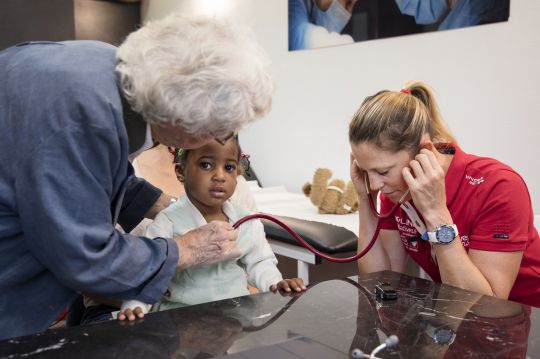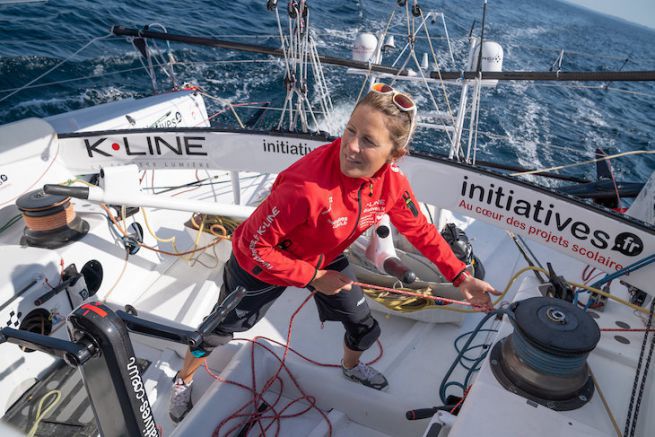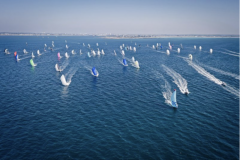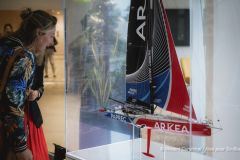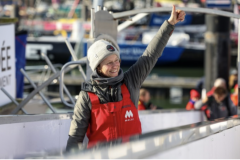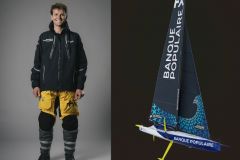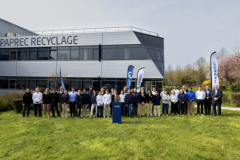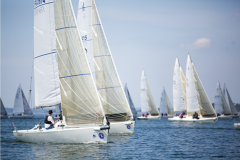As for many professional sailors, winter is a good time for the yards to optimise their racing boats. And that was the case for Samantha Davies, whose boat is still at the end of the refit given the situation. "There's not much work left for the release. It's reassuring enough to know that when containment ends, I'll be able to sail fairly quickly."
Weather and computer preparation
In the meantime, she is preparing for the next Vendée Globe, which is due to start in 2020. A training course that she began ashore, with the other skippers from the Finistère Course au Large centre in Port La Forêt.
"There are a lot of things you can do at home, starting with working on the weather road book given by Jean-Yves Bernot (NDLR Router and navigator). There is a lot of reading and historical cases to study. We have the Grib files (Editor's note: weather forecast data) and we can navigate from our offices with this data from previous years. We're studying several different cases, more classic situations, but also some pitfalls that we'll have to avoid."
A job "nice." that allows him to escape at sea and think about his boat.
This time spent ashore also allows him to develop his habits with navigation software. "Our boats today rely heavily on computer systems and each has its own little homemade software for performance."
On these complex IMOCA boats, the skippers usually don't have time to complete all their many preparations. However, this period of confinement allows them to get to the end of things.
When will we see départ??
At the same time, the yachtswoman and her team are preparing for the end of her boat's refit for the start of the Vendée Globe. "We make up job lists, which we change often. We don't know when we'll be able to go back to sailing. Will it finally be in the race or in entrainement?? Will the Vendée Globe take place in November or will it be repoussé??"
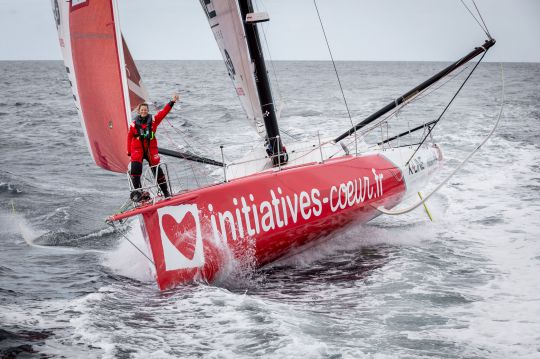
A difficult return to normal
These questions do not prevent him from continuing to prepare his project in liaison with his partners and companies that support it. "We know it's going to be difficult for them and we're working on how to cut costs. We're anticipating and adapting to the economy, which will be different in the future."
Keeping in shape
"Our boats are very physical. If we were to leave confinement and return to sailing without maintenance, we'd suffer very quickly."
Samantha therefore continues her physical preparation at home - between 1 to 1.5 hours of daily activity - thanks in particular to her trainer and coach who prepares video sessions and smartphone applications for her. "Even though it's hard to get motivated, having someone who sends sessions every day puts a certain amount of pressure on you. My life is very sporty and I need to keep moving every day to get a good night's sleep. I have a garden and the weather has been nice lately, so that helps."
A healthy lifestyle that is an integral part of his confinement schedule. "It takes time to get organised, because like everyone else at the moment I also manage my son who moves around a lot and for whom I manage the school at home. So I have to make him understand that it's my turn to play sports. But I've made a schedule to set a rhythm and he's understood that. "
A particular sensitivity to the situation
With her Initiatives c?ur project, Samantha is very involved in the humanitarian approach to saving children, and is therefore particularly sensitive to the current situation.
Today, she's following this from home. "Some children are stuck here and can't go home. It's pretty special. Some surgeries are also staggered because they're not a priority."
It also raises the question of "restarting" the association when life has resumed its course. "It's a difficult economic situation and the associations are going to suffer particularly badly. We can only imagine how we can help them."
Before concluding "I have a thought for all these children and all the nursing staff. I wish them all the best and give them my support, as I am used to working with them as part of my sponsorship. I witness their dedication when I see them operating on these children's hearts. In the end, even if you have to wait and suffer from not being able to sail, it is nothing compared to what the caregivers go through."
